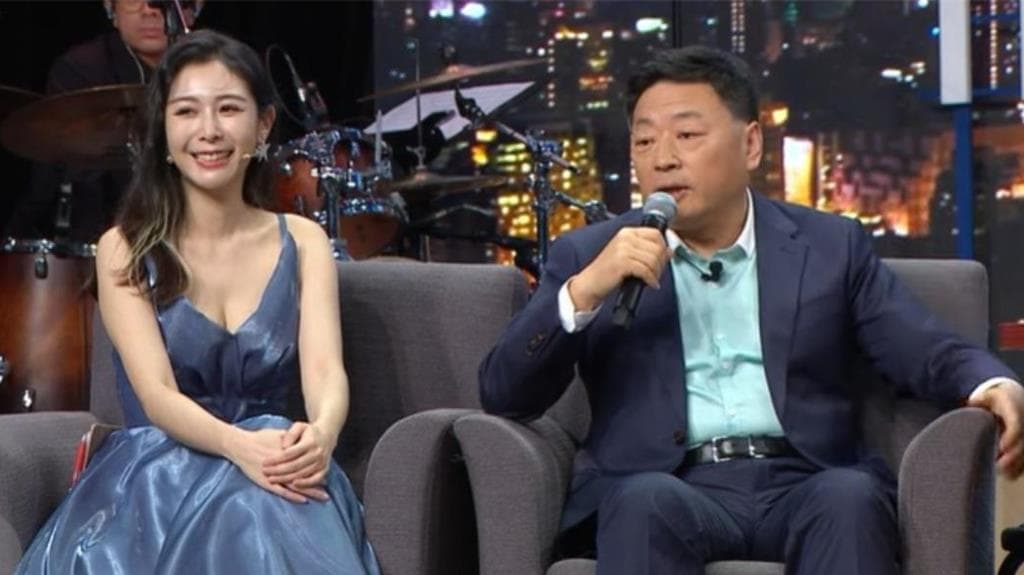Taiwan's "THE NIGHT NIGHT SHOW with HELLO" Talk Show Host Apologizes for Insensitive Comment on Disability
Controversy has erupted following a recent episode of the online talk show "THE NIGHT NIGHT SHOW with HELLO" where Chinese media figure Wang Zhi'an made disparaging comments about people with disabilities. The remarks prompted a wave of criticism and initiated discussions on the ethics and oversight of media content.

24 January 2024
During the show Wang Zhi'an reflected on political rallies in Taiwan, suggesting they were often emotionally manipulative, and went as far as to make perceived mocking imitations of persons with disabilities. His comments were swiftly met with backlash, leading to the show's producer, Satter, issuing an apology. Satter expressed deep regret for the oversight in content moderation, specifically addressing their apology to lawyer Chen Junhan.
The incident has thrown a spotlight on the activities of individuals from mainland China visiting Taiwan. Wang Zhi'an's visit has raised questions about the purpose of his stay. It has surfaced that he entered Taiwan with a 1-year multiple-entry permit for tourism as a Chinese citizen living abroad. However, his participation in the talk show and making political statements have been deemed a violation of the terms of his entry.
According to the National Immigration Agency, mainland Chinese residents visiting Taiwan must engage in activities that correspond to the stated purposes of their visas. The NIA highlighted in a press release that Wang Zhi'an, by participating in the talk show and making public comments, had contravened the regulations governing mainland Chinese tourists' activities in Taiwan. Consequently, his permit to enter Taiwan has been revoked, and he has been barred from entering the country for tourism for a period of five years.
The incident has been amplified by reactions on social media, with some users on Weibo accusing the Taiwanese media of taking Wang's comments out of context and propagating a biased narrative. One tweet suggested that the Taiwanese media and the Democratic Progressive Party, often referred to as the "Green Camp," had sensationalized the episode. According to the tweet, Wang was criticizing unhealthy practices within Taiwan's electoral system, including allegations of vote-buying, rather than deliberately targeting individuals with disabilities.
The debate over Wang Zhi'an's appearance and subsequent revocation of his entry permit has sparked a broader conversation about the balance between freedom of expression and responsible media conduct. It has also shone a light on the distinctions between visitor activities and the regulations that govern them. The Taiwanese government's firm response underscores their commitment to enforcing the regulations that guide cross-strait exchange to ensure it is conducted in a healthy and orderly manner.
Moreover, the incident raises important questions about the scope of permissible activity for mainland Chinese individuals who visit Taiwan under the guise of tourism. It highlights the delicate nature of cross-strait relations, where actions deemed politically sensitive can have significant repercussions.
The Taiwanese public's reaction varies widely from support for the government's stance on enforcing its laws to criticism over what some perceive as an overly harsh response to a media personality's misjudgment. Regardless, the incident has undeniably triggered a reevaluation of media roles and responsibilities, as well as the monitoring of content that is released for public consumption, especially in politically charged climates.
The story of Wang Zhi'an's comments and the fallout is a cautionary tale about the complex interplay between media, politics, and the regulations that bind visitor conduct. It further serves as a reminder of the profound impact that words spoken in the public arena can have, not just on individuals and communities but also on the intricate fabric of international relations. It is a reflection of an era where a single episode of an online show can have a ripple effect, igniting debates on ethics, law, and the responsibility of the media towards societal values.
Share this article
Related Articles

Ruby Lin Says She and Wallace Huo Are Still “Adjusting” After Seven Years, Igniting Viral Debate on Celebrity Marriages
By Trending on Weibo
Entertainment
15 Sept 2025

“Too Much Qi”: A Light‑hearted Joke on ‘Sisters Who Make Waves’ Sparks Celebrity Smear Campaign, Wellness Debate and Online Meme Frenzy in China
By Trending on Weibo
Entertainment
15 Sept 2025
Li Ronghao’s Tour Surge, New Video Release, and NFC Album Glitch Spotlight Quality‑Control Challenges in China’s Pop Scene
By Trending on Weibo
Entertainment
13 Sept 2025
Mu Zhicheng Emerges as TF Entertainment’s Hottest Trainee Amid Viral Social‑Media Surge and Anticipated Debut
By Trending on Weibo
Entertainment
13 Sept 2025

China’s Emerging Acting Sensation Zhang Kangle Poised for High‑Profile Film, Fashion, and Digital Stardom
By Trending on Weibo
Entertainment
13 Sept 2025